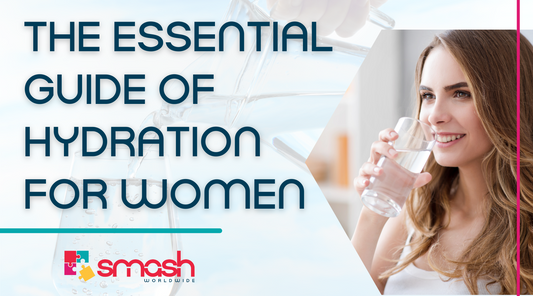There is so much talk about Ultra Processed Food at the moment and it is something that I have been talking to my clients about for years. Most of the food that the general public are eating, is highly processed and not good for long term health.
What is Ultra Processed Food (UPF)?
There is no definitive definition of what Ultra Processed Foods are, and this is probably because talking about these kind of foods is a relatively new thing.
One simple definition is - “industrial formulations with five or more ingredients.” It is interesting that the word food is not used in this definition. I believe that UPFs are not food, but food like substances.

Are more definitive description can be noted from the NOVA food classification system, which was developed by researchers at the University of São Paulo, Brazil.
This system places food into 4 categories based on how much they have been processed during their production:
- Unprocessed or minimally processed foods: This includes produce such as fruit, vegetables, milk, fish, pulses, eggs, nuts and seeds that have no added ingredients and have been little altered from their natural state.
- Processed ingredients: This includes foods that are added to other foods rather than eaten by themselves, such as salt, sugar and oils.
- Processed foods: These are foods that are made by combining foods from groups 1 and 2, which are altered in a way that home cooks could do themselves. They include foods such as jam, pickles, tinned fruit and vegetables, homemade breads and cheeses.
- Ultra-processed foods: Ultra-processed foods typically have more than one ingredient that you never or rarely find in a kitchen. They also tend to include many additives and ingredients that are not typically used in home cooking, such as preservatives, emulsifiers, sweeteners, and artificial colours and flavours. These foods generally have a long shelf life.
Examples of UPFs are, factory-made bread, pre-packaged meals, breakfast cereals, sausages and other reconstituted meat products, confectionery, biscuits, pastries, buns and cakes, factory-made chips and fries, soft drinks, fruit drinks and fruit juices, salty snacks including crisps and sauces, dressings and gravy.
Think about how many of the above items are regularly going into your shopping trolley and the potential impact it can have on your health.
People in the UK are one of the biggest consumers of Ultra Processed Foods - in 2023, 57% of calories eaten by adults is ultra processed and scarily it's 65% for children. The impact of eating this kind of food is showing on the health of our nation. According to the NHS, one in five children aged 10 and 11 are classed as obese. In 2021, 38% of adults were over weight and 28% classified as obese.
Food, along with unhelathy lifestyles are having a long term negative impact on our lives. As women, we need to take back control of the food that we are eating so we can take back control of our health.
The Alternative to UPFs
A minimally processed diet has amazing benefits for our health and wellbeing. Imagine feeling more energetic, balanced, and vibrant every day—sounds like a dream?
Well, it can be your reality!
Embracing minimally processed foods can bring harmony to your hormones and help manage your weight naturally so you can age in a way that means you don't end up feeling like rubbish for the later years of your life.
Why Eat Minimally Processed Foods?
Minimally processed foods are foods that are as close to their natural state as possible—think fresh fruits and veggies, whole grains, nuts, seeds, and lean proteins. They’re free from added sugars, unhealthy fats, and artificial ingredients and don't tend to have a very long ingredients list or even a food label. You should be able to recognise this kind of food as it is in its natural form. When we eat foods in their natural form, we’re giving our bodies the nutrients they need to thrive.

Hormone Harmony
Our hormones are like little messengers in our bodies, and they play a crucial role in everything from mood regulation to metabolism. Eating minimally processed foods can help keep these hormones in check. Here’s how:
- Stabilising Blood Sugar: Processed foods, especially those high in sugar, can cause spikes and crashes in blood sugar levels. This can lead to insulin resistance, which is linked to hormonal imbalances. Whole foods help maintain steady blood sugar levels, due to their fibre intake, supporting overall hormone health.
- Reducing Inflammation: Many processed foods contain additives and unhealthy fats that can trigger inflammation. Chronic inflammation can disrupt hormone production. On the flip side, whole foods are packed with anti-inflammatory nutrients that promote hormonal balance.
- Supporting Liver Function: Your liver is responsible for metabolising hormones. A diet high in whole foods supports liver health, helping it effectively process and eliminate excess hormones.
- Reducing Toxin Exposure: Many UPFs are packaged in plastic wrappers and are microwavable. This packaging can contain BPAs and phalates that can mimic the body's natural production of hormones and this can result in hormonal disruption and ongoing health concerns.
By reducing your intake of UFPs, you will naturally reduce symptoms of hormonal disruption. Many of my clients are astounded at how their monthly cycle improves once they start eating The SMASH Way. Women suffering with perimenopausal symptoms are also delighted with a reduction in their symptoms. They feel back in control agian.
Weight Management
Now, let’s talk about weight management. One of the wonderful benefits of eating minimally processed foods is that it naturally supports a healthy weight. Living a healthy lifestyle is not about restriction and denial. It is about eating the right foods for your body to support it in an optimal way. Always remember, a health body does not need excessive body fat.
Eating minimally processed foods will naturally help you lose and then maintain your weight for the following reasons:
-
Nutrient Density: Whole foods are packed with essential nutrients that keep you full and satisfied. This means you’re less likely to overeat or crave unhealthy snacks. The correct satiety hormones will be triggered with the correct food intake. UPFs trigger your ghrelin hormone, which makes you want to eat more - think of the slogan "once you pop, you can't stop".
-
Healthy Metabolism: Nutrient-rich foods support your metabolism, helping your body burn calories more efficiently. Processed foods can slow down your metabolism, making it harder to maintain a healthy weight. Think about how you feel after you eat certain foods. Are you full of energy or drained and wanting to lie on the sofa?
-
Balanced Gut Health: A healthy gut is crucial for weight management. Whole foods are rich in fibre, which supports a healthy gut microbiome. A balanced gut can improve digestion, reduce bloating, and help you feel lighter and more energetic. Aim to be eating 30 plant sources each week, as this will give your gut the variety that it needs.

Practical Tips for Reducing UPFs in your Diet
Ready to decrease your intake of UPFs and increase the amount of minimally processed foods you eat? Here are some practical tips to help you embrace a minimally processed diet:
-
Shop the Perimeter: Stick to the outer aisles of the supermarket, where fresh produce, meats, and dairy are typically found. Avoid the middle aisles filled with processed snacks and packaged foods.
-
Read Labels: When buying packaged foods, read the ingredient list. Look for items with a short list of recognisable ingredients. If you can’t pronounce it, it’s probably best to avoid it.
-
Cook at Home: Preparing your meals at home gives you control over what goes into your food. Experiment with new recipes that highlight whole, fresh ingredients.
-
Plan Your Meals: Planning your meals in advance can help you stay on track. Create a weekly menu that includes a variety of colourful fruits, vegetables, lean proteins, and whole grains.
-
Stay Hydrated: Don’t forget to drink plenty of water. Staying hydrated supports your metabolism and helps your body eliminate toxins.
- Invest in The SMASH Way: If the thought of all of this is overwhelming, I am here to help you navigate your way forward, with practical tips, recipes and support. Doing it alone is scary, and you don't have to.

The SMASH Way
Living life The SMASH Way can help you navigate your journey from eating UPFs to minimally processed foods. You will be able to know what food and ingredients you need in order to make delicious meals for your family, you will understand how to read food labels properly and not be fooled by the clever marketing from food companies.
You will be able to rebalance your hormones and lose unwanted body fat too.
When you live life The SMASH Way, you will embrace a holistic approach to your health. By combining your minimally processed diet with regular movement, stress management techniques, and plenty of restful sleep you will be able to smash your health goals going forward. .
You’ve got this, and I’m here to support you every step of the way. Let’s embrace the power of minimally processed foods and unlock the full potential of your health and wellness together!




